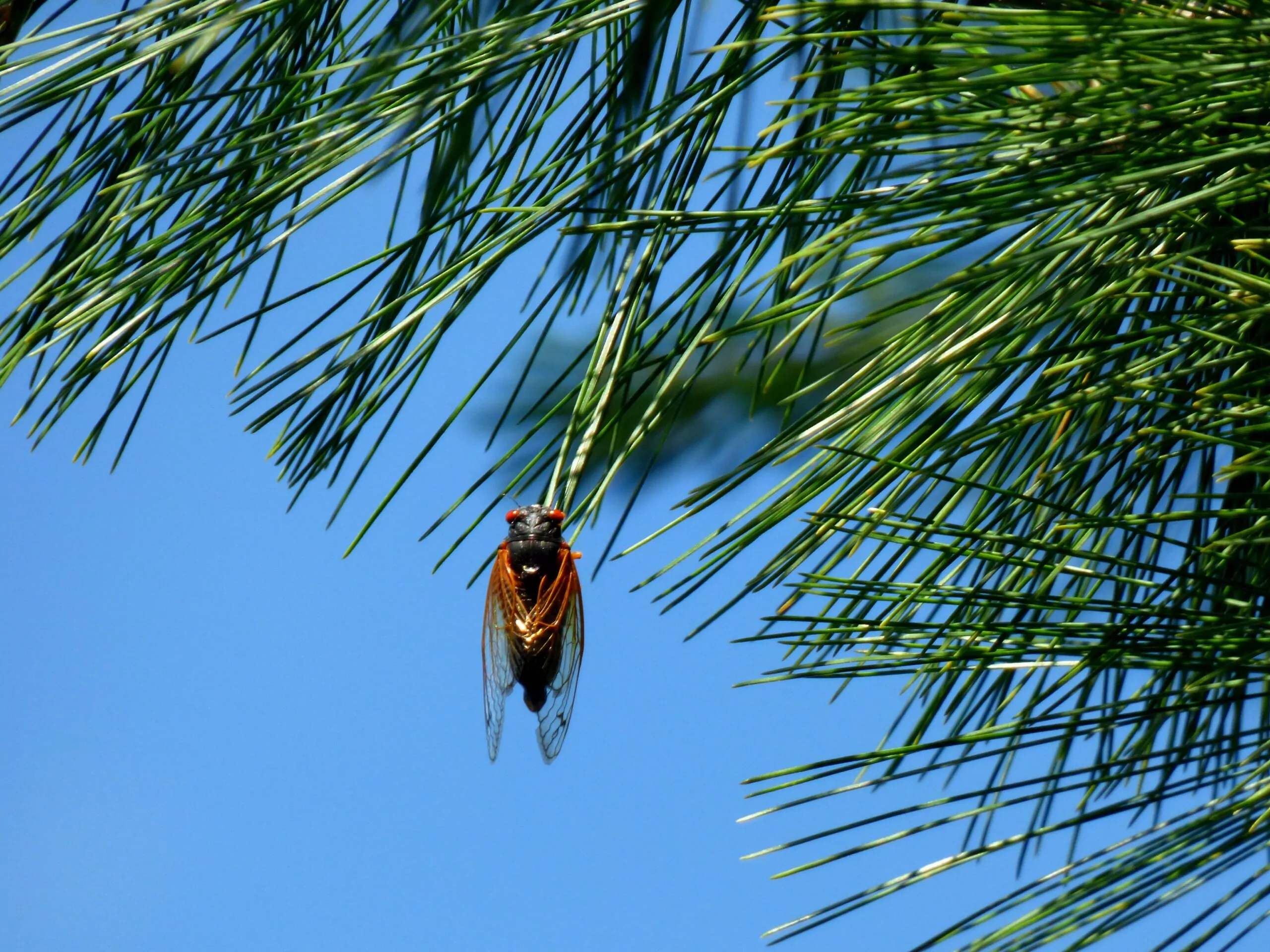
What are Brood X cicadas?
Brood X cicadas or The Great Eastern Brood, are a species of periodical cicadas that only emerge every 17 years. These cicadas have the longest known lifespan of any insects and they date back 3.9 million years ago. They were last seen in 2004 and after this summer, they will not be seen again until 2038. Brood X cicadas are easily identifiable with large red eyes, orange wings and two inch long blue bodies. They were named by an entomologist Charles Lester Marlatt in 1898. Brood X is one of the largest broods of cicadas and is the longest living brood. There are 15 different periodical broods of cicadas in the United States that either appear every 13 or 17 years. Northern Virginia is one of the three epicenters for the Brood X cicadas.
These cicadas emerge from the ground in 18 states and Washington, D.C. in late April or early May, depending on when the soil reaches a perfect 65 degrees Fahrenheit. Once they have emerged, they will work on finding a mate and laying their eggs, all in a four to six week time span. A single female cicada can lay over 100 eggs at one time and up to 600 in their brief lifespan. The males will die immediately after mating. After laying their eggs on a tree, the female cicadas will die. The eggs will hatch and nymphs will fall to the ground, where they will burrow and feed off of tree roots and sap for 17 years until they reemerge to mate.
In Northern Virginia, it is expected there will be millions of cicadas and they will be easy to see and hear. Known for their colorful bodies, large size and chirping or clicking noises, these cicadas will probably frighten and annoy some people. Despite their demeanor, they are incredibly beneficial for the environment. Snakes, birds, fish, squirrels, skunks, ants, raccoons and opossums will feed off them. Cicadas are not harmful and will not bite or sting people or pets. They will not spread diseases or make you sick. However your pet might get an upset stomach if they eat too many of them. Because cicadas are such a good source of protein, many people will even eat the cicadas
What are some signs of cicadas?
Some signs of cicadas are the noises they make, cicada chimneys and seeing actual cicadas.
Cicada noises: Male cicadas make distinct noises that attract female partners they can make with. Female cicadas however do not make the same noises. The noises are made from
Cicada chimneys: Some cicadas create tunnels in the mud prior to them emerging. They build vertical tunnels made of mud over the hole they emerge from. Seeing these holes is an indicator that cicadas are coming soon because these tunnels are unique to these Brood X cicadas.
Seeing Cicadas: The most obvious sign of the Brood X cicadas is seeing them. Because there will be so many of them and they have very distinct features, it will be easy to see them.
What to do about the cicadas?
Because the Brood X cicadas are not harmful, there are so many present and they are only around for a short period of time, there is nothing to do from a pest control standpoint. It is important to not treat them with pesticides and pest control companies will not treat them. As mentioned before they have many natural predators and are only present for a four to six week period until they die. Cicadas do not spread any diseases or bite or sting people, so there are no health risks associated with them. These cicadas are a natural marvel and although they are not a protected species, they should not be controlled by human intervention. Scientists have been attempting to track the species and see exactly where they will appear. If you hear or see one of the Brood X cicadas, you are encouraged to report them on the CicadaSafari app.
What damage can cicadas cause to homes and gardens?
Cicadas are not a threat to plants, because they do not eat them. However, they will cut into twigs on tree branches to lay their eggs and often the branch will die but it does no further damage to the tree. Small trees with branches the diameter of a pencil are more at risk to damage from cicadas. Trees can be wrapped in mesh to prevent the cicadas from nesting and young trees should not be planted until after the cicadas are gone. Beyond their minor damage to trees, cicadas do not pose a threat to your home, garden or even members of your household. Cicadas are a natural part of the environment and there is really nothing you can do to keep them away. Wildlife that acts as their predators will keep their population regulated.
Why are cicadas good for the environment?
Cicadas that die and are not eaten by predators will become a natural fertilizer. Their bodies are full of nitrogen and that helps the soil and therefore the plants. However they are not as beneficial to plants and the environment as expected. While cicadas are under ground, they are acting as parasites to trees and taking their nutrients.
Why is there more wildlife in my yard now?
Due to the fact that many creatures enjoy consuming the cicadas and because they will be prevalent and readily available, there might be more animals in your yard if you happen to have lots of cicadas. If the animals are becoming a nuisance and you would like to have them removed, Summit Wildlife Removal can offer services such as trapping or exclusion work to ensure that the animals stay away.
Pest Control in Northern Virginia
Although we cannot offer any kind of cicada solutions, we can offer pest control and wildlife removal services for a variety of pests and animals. If you are hearing animals in the attic, seeing squirrels on your roof, having an ant infestation in your kitchen or seeing carpenter bees, you should contact us and schedule an estimate.












